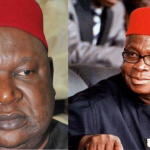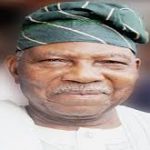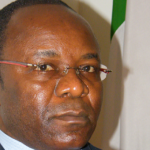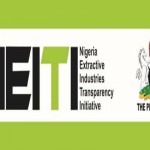OPINION: Who will Recall Dino Melaye?
Articles/Opinion, Featured, Featured Contributors/Columnists, Latest Headlines Monday, June 19th, 2017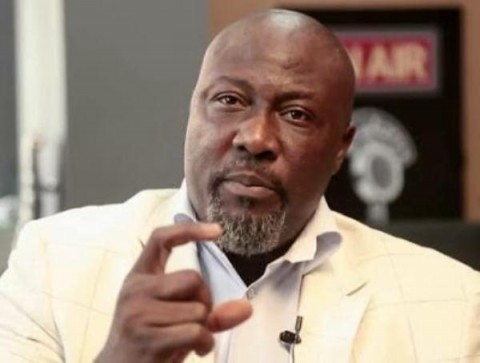
By Adewale Kupoluyi
(AFRICAN EXAMINER) – Nigeria is a very peculiar nation in all respect. It is for this singular reason that I find it extremely difficult to accept hook, line and sinker the general belief that what operates in other climes would automatically be applicable here. Far from it! Over time, experience has shown that the fact that a well-designed and tested policy, programme or model ever worked well in the best democracies of the world, is not an assurance that it would function or see the light of the day in our dear country. Nigeria is certainly a unique country of its own kind.
The recall process is put in place, as a control measure, to check and curtail the excesses of law makers in a legislative house that are either working at cross purposes with the interest of their constituencies or the offices they occupy. While the instrumentality of recall has been successfully used to tame deviant legislators and replace bad parliamentarians in other countries, the effect of such an important provision under our democratic architecture, from what we have seen over the years, is nothing order than a mere weapon of political intimidation, negotiation and bargaining in Nigeria. It is on this strength that recent threats of recalling Senator Dino Melaye, representing Kogi West in the Senate could be taken with a pinch of salt. The main reasons why this may be so is still the same problems why Nigeria has retrogressively remained a peculiar nation: inconsistency on the part of key political actors, bureaucratic bottlenecks, party indiscipline, corruption, impunity and weak institutions.
According to the people protesting against him from his senatorial district, Melaye is accused of allegedly not according due respect to party democracy, breaching multiple codes of conduct, not having a constituency office and engaged in electoral offences. It is common knowledge that Melaye had been in conflict with some top political figures in Kogi State, including the state governor, Yahaya Bello, Senator Smart Adeyemi and the sole administrator of Ijumu Local Government Area of the state, Taofiq Isah, who is currently standing trial for an alleged assassination bid on the Melaye’s life.
Sections 69 and 110 of the 1999 Constitution of the Federal Republic of Nigeria (as amended) provide for the manner in which recall may be carried out in both federal and state legislature. Specifically, the constitution provides that a member of the Senate or of the House of representatives may be recalled as such a member if: firstly, there is presented to the Chairman of the Independent National Electoral Commission (INEC), a petition in that behalf, signed by more than one-half of the persons registered to vote in that member’s constituency alleging their loss of confidence in that member; and whose signatures are duly verified by the INEC; and secondly, the petition is thereafter, in a referendum conducted by INEC within 90 days of the date of receipt of the petition, and approved by a simple majority of the votes of the persons registered to vote that in member’s constituency. The petition would have been duly signed and arranged according to polling units, wards, local government areas and constituency. The Chairman of the INEC is obliged to send a Certificate of Recall to the President of Senate to effect the recall when the process is eventually completed.
The constitutional provisions, as stated above, appear to have contributed to making the recall process a mere academic exercise rather than practical. For instance, what constitutes ‘loss of confidence’? The constitution is silent on this; which for me is a lacuna that would require constitutional amendment. This cumbersome and modus operandi on how to go about the recall, has been largely responsible for why there seems not to be any successful prosecution of recall process in the country. Unfortunately, this development is not good for our democracy in the sense that the existing institutional framework, rather that brewing good governance, tends to promote impunity wherein the excesses of parliamentarians cannot be tamed.
Permit me to state that this discourse is neither in support nor against the recall of Melaye. It is simply a review and appraisal of the existing legislative bureaucracy with reference to law making, discipline and good governance, especially now that many Nigerians are skeptical and inundated with wrong perception about the legislative activities of many parliamentarians in the country, who have been severally blamed as being unproductive, anti-people and illegally collecting jumbo salaries. As noted earlier in the introductory part of the essay, it is in Nigeria that nothing works the way it should ordinarily do. While our law makers rule like ‘kings’ in our dear country, their excesses are easily brought under check in other nations of the world, where structures and institutions work.
Recall process has been very effective in other climes. For instance, In the United States of America, Wisconsin Senators Randy Hopper and Dan Kapanke were recalled; Arizona Senate President Russell Pearce was also recalled while Michigan State representative Paul Scott was recalled; just as Wisconsin State senator Van Wanggaard and Colorado Senate President John Morse and Senator Angela Giron were successfully recalled. Nobody should be allowed to be above the law. This should be the standard practice under civil rule, Nigeria inclusive. No wonder that Melaye has described the process of his recall as a ‘joke’ because of the inability of the process to be used to discipline any law maker in Nigeria. At the end of the day, I would not be surprised that nothing meaningful would really come out of the whole exercise.
Without prejudice, when I watched the protesters calling for the removal of Melaye, they appear to me like sponsored set of people, who are on a political mission and not set out to truly demand and promote accountability and transparency in governance. It would not be a shocker to Nigerians that all the parties in the Kogi matter would shift their positions in a jiffy and be singing different tunes such that nobody talks about the recall, again.
There is an urgent the need for attitudinal change by all, if we are truly ready to grow our democracy. What this would mean is that we should all be sincere and ready to put political actors on their toes in moving the nation forward through constructive engagement and allowing democratic institutions to work, just like what is obtainable in other progressive nations of the world, where it is possible to recall erring their law makers and discipline public office holders. We should be able to entrench such and put in place, solid mechanisms that are doable that would make things work for us as a nation despite our peculiarities, complexities and diversities as a people.
Kupoluyi writes from Federal University of Agriculture, Abeokuta (FUNAAB), adewalekupoluyi@yahoo.co.uk,@AdewaleKupoluyi
Related Posts
Short URL: https://www.africanexaminer.com/?p=39759




